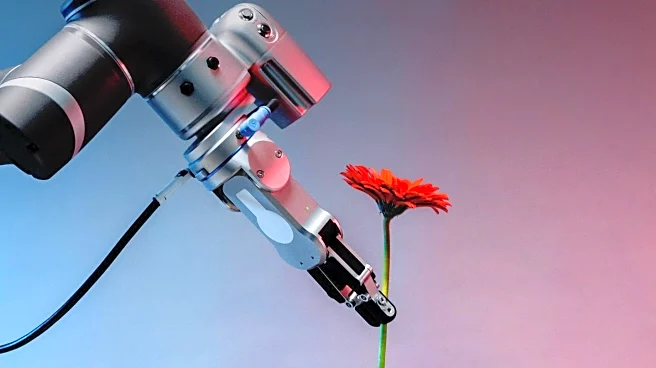What is the story about?
What's Happening?
A new qualitative study has explored the demand for training in robotic-assisted surgery (RAS), highlighting its advantages over traditional surgical methods. The study involved 41 participants, including teachers and students, and identified key themes such as the necessity of RAS training, the content required, and suitable training methods. Participants emphasized the importance of understanding robotic systems, surgical skills, and teamwork, with a focus on simulation and clinical operation training.
Why It's Important?
The increasing adoption of robotic-assisted surgery in healthcare necessitates comprehensive training programs to ensure surgeons are proficient in these advanced techniques. The study's findings underscore the need for educational institutions and healthcare providers to develop robust training curricula that incorporate both theoretical knowledge and practical skills. As RAS becomes more prevalent, the demand for skilled practitioners will grow, impacting the future of surgical education and patient care.
What's Next?
Healthcare institutions may consider expanding their training programs to include more RAS-focused content, potentially collaborating with technology providers to access the latest equipment and resources. The study's insights could inform policy decisions regarding surgical education and certification standards, ensuring that future surgeons are well-equipped to utilize RAS technology effectively.














